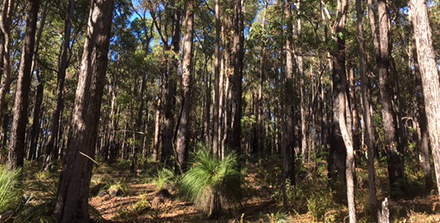Documents released under a Freedom of Information request have exposed a lack of evidence-based decision making by the Western Australian Government in relation to management of native forests, according to the organisation that represents professional forest scientists and managers. Source: Timberbiz
Chair of the WA Branch of Forestry Australia, Brad Barr, said revelations that the decision to end native forest timber harvesting was not backed up by scientific evidence gave reason to question the Government’s motives.
“It seems that the Government tells us to “listen to the science” except when the science contradicts its own policy objectives,” Mr Barr said.
“Claims by the Western Australian Government that climate change and declining rainfall make future harvesting of native forests unsustainable have not been backed by evidence. On the contrary, potential impacts of climate change on forest growth have been factored into conservative forest productivity models.
“Forestry Australia notes that the 2014-2023 Forest Management Plan and its various independent reviews, the most recent released in 2019, have all re-iterated that the potential effects of climate change on the growth rate of jarrah and karri trees have been factored in when projecting future yields. Future tree growth and timber yield estimates have assumed high climate change severity. And even then, a further 10% was deducted from calculated sustainable yields, to provide an additional safety buffer.
“A government spokesperson quoted the 2019 Intergovernmental Panel on Climate Change, which found reducing deforestation and forest degradation rates is one of the most effective and robust ways to mitigate climate change.
“Forestry Australia agrees completely, which is why we are puzzled that the sustainable harvest of native forest products is ceasing, while broad-scale clearing of thousands of hectares of jarrah forest for mining is allowed to continue, and even to expand.”
According to the Intergovernmental Panel on Climate Change: “In the long term, a sustainable forest management strategy aimed at maintaining or increasing forest carbon stocks, while producing an annual sustained yield of timber, fibre or energy from the forest, will generate the largest sustained mitigation benefit.”







